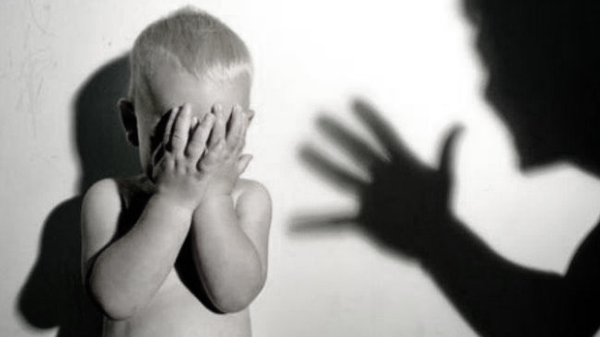
Do I have PTSD?
If you are alive, then you have experienced a trauma – most likely a few. Nobody escapes them. Traumas occur in all of our lives at one point or another. It is simply a part of being alive, living in a world with ups and downs, positives and negatives and sometimes frightening events. Trauma enters into all of our lives – no invitation necessary. Traumas can happen for specific reasons or no reason at all.
Traumas include experiences such as physical abuse, sexual abuse and verbal abuse. Trauma can be one event or a series of traumatic events repeated over time leaving an individual with painful, frightening or loathsome emotions.
Trauma survivors could have experienced emotional childhood trauma such as demeaning, demanding verbal attacks or physical or sexual abuse. The negative effects on victims is real and can last a lifetime. No two people react to a traumatic event in the exact same way. One person may have the coping skills to move forward in a healthy manner whereas another person experiencing the same trauma may turn to alcohol or drugs.
When somebody is unable to process and integrate traumatic events, he or she will feel alone in the world, feelings that recur are worry, fear, worthlessness, guilt and shame. Trauma survivors have a troublesome time navigating relationships because of low self-esteem and the challenges that intimacy provides.
Are you haunted by memories that feel real? Do you suffer in silence? How can you start to process your traumas? How can therapy help?
Processing traumas allow you to heal and ultimately to move forward. You start to see the trauma as negative events but also as a chance to learn and gain meaning. For instance, a bad break up where you feel terribly rejected by a person you loved and truly despondent, could become an opportunity to grow past your current limits. You begin to peel away the layers, to understand your own role in relationships and bring that knowledge to the next one. If you feel disappointed and sad, and those feelings are validated, you can make sense of them and move forward. If you have harsh critics in your life (family members, friends, your own self – often we are our own worst critic) you will have a hard time processing the trauma and moving along. You may end up obsessing about what you did wrong or what you can blame on the other person. It can go on for many years or even forever. Time does not heal all wounds.
Are you obsessing about a break up? Our attachments are so strong with intimate partners that when the attachment is severed our brain sends signals that we are literally dying without our partner.
If this sounds familiar, call me, we can help.
Even a very devastating sexual violation can be processed in therapy so that you feel validated and understood. You can feel safe again in the world. You may not choose to forgive and forget or you may, that’s your decision. Therapy provides a place to feel safe and share whatever deeper emotions you are experiencing. This is an integral part of the process. If you have experienced a trauma, and you are having a tough time “moving on” and you feel a lot of pressure to do so, we encourage you to contact us. We will give you as much time to heal as you need and we also realize that it is not a matter of willpower. You want to feel better and you want to move forward.
Though closure may not truly exist, you can put the past away and learn how to be a survivor instead of a victim.
Why does it matter what you call yourself? Survivor or victim? A goal in therapy is to empower you so that you can use your painful events or traumas to learn and experience your life as a whole, complicated person. Even people who have suffered through horrific, horrible traumas can use them as learning opportunities and live fulfilling lives with meaning. Viktor Frankl, a survivor of the Holocaust has written about this topic. In “Man’s Search for Meaning” he describes his own experience in a concentration camp finding meaning in the face of horrible suffering and atrocities. The actual title is “Saying Yes to Life in Spite of Everything: A Psychologist Experiences the Concentration Camp.”
Big T trauma includes events such as: war, death of a loved one, rape, abuse. Though not always understood by others, little t trauma can produce similar PTSD symptoms and become just as debilitating as a Big T trauma.
What is PTSD? How do I know if I have it?
PTSD is an anxiety disorder originating from a life-threatening event or a psychological trauma. PTSD symptoms include: nightmares or night terrors, flashbacks, insomnia or intermittent awakenings, angry explosions, agitation and an overall uneasiness. Most often people with PTSD will avoid the actual scene of the event as well as any other situations and places that remind them of the event, producing fear and anxiety. Typically, the avoidance will start small and blossom out of control. For example, a person who gets into a car accident might start to experience flashbacks and panic attacks when she drives. So, she decides to avoid that feeling and stop driving for a few days because she feels anxious about it. The days turn to weeks and then months. Next, she doesn’t want to be a passenger in cars either. This makes it hard to get to work and the grocery store and other places where she might socialize with friends. Eventually, she is unable to leave the house. She has become a full on agoraphobic.
The level to which the distressing event was outside of a person’s control effects the possibility of developing PTSD. Highly stressful or life-threatening events as well as attachment bonds being severed, can flip a switch in your brain. This switch occurs in the amgydala, a primitive area. That’s our survival mode: fight, flight or freeze. It is our nervous system’s response to a serious threat. What happens is that we get “frozen” or the switch gets stuck in one of these modes. Rejection and abandonment from a partner can flip the switch.
Symptoms of PTSD:
- Intrusion: nightmares, flashbacks, obsessive thoughts, increased heart rate, sweating, strong emotions, repeating trauma with new people or partners (unintentionally)
- Avoidance: avoiding reminders of the event, cannot remember part of parts of the event, minimize its importance, loss of interest in life, apathy, lack of motivation, self-medication like substance use, struggles with friendships and intimate partners
- Hyperarousal: insomnia, digestive problems, muscular or joint pain, rage, hyper-vigilance of surroundings, panic or anxiety attacks, excessive startle response
- Negative Emotions: Negative feelings about yourself or others, feeling emotionally numb, hopelessness, struggling to maintain close relationships
- Suicidal Thoughts: Call a suicide hotline number — in the United States, call the National Suicide Prevention Lifeline at 800-273-TALK (800-273-8255) to reach a trained counselor. Also, 503-988-4888.
PTSD is a chronic stress on your body. Treatment focuses on releasing the past. If you are experiencing these symptoms and seeking a therapist in Portland, Oregon, we encourage you to call us: 917-370-2358.


